How to Keep Mosquitoes Away for Good

By Marilyn Syarto
Mosquitoes are one of the most dreaded and prevalent pests in the summer—they aren’t just a nuisance, they can actually pose a health threat. If only you could drape your property in mosquito netting, that would solve the problem of those annoying little pests. Thank goodness for screened rooms and screened gazebos. However, the more practical approach: natural prevention methods that won’t fog up your yard with clouds of chemicals.
In this guide, we'll walk you through how to keep mosquitoes away, and we'll answer a few important questions: What attracts mosquitoes? Are mosquitoes dangerous? What are some DIY methods to keep mosquitoes away?
Image via Shutterstock
That’s where we come in—our guide gives you the two best DIY methods to prevent and chase away mosquitoes. As an important note, spraying pesticides to kill adult mosquitoes isn’t exactly the best or most effective solution. (By the way, here’s a simple DIY natural pesticide to make for other types of garden bugs.) Chemicals will negatively affect beneficial insects, pollinators, and other wildlife, despite pest-control marketing claims. The key—larva control.
Why Mosquitoes Are Important
Remember, as incredibly pesky as mosquitoes can be, they have an important purpose in our ecosystem. It may seem hard to believe, but mosquitoes are pollinators and they prefer drinking nectar over our blood. They also serve as food for certain beloved creatures, like dragonflies, hummingbirds, turtles, frogs, and bats (for those of us who appreciate these winged wonders, consider building a bat house). So don’t hate mosquitoes too much.
What Attracts Mosquitoes?
You may feel compassion for mosquitoes when you hear that males are busy pollinating and don’t care about human blood; it’s the pregnant females who need your blood for an extra energy boost. The females follow carbon dioxide plumes and other scents you are giving off, which is why they tend to hover around your face. Science has not yet figured out why mosquitoes like to bite some people more than others, but theories point to differences in diet, blood type, and other genetic factors.
Are Mosquitoes Dangerous?
The fact that you’re feeding a bug with a bun in its oven doesn’t mean you should turn yourself into a blood bar for the neighborhood’s pregnant mosquitoes. Most mosquitoes are harmless. But, they can potentially carry many types of diseases, depending on which part of the world you live in, such as West Nile, Zika, yellow fever, dengue, and malaria. Although it’s unlikely you will contract any of these diseases, it helps to be mindful and take steps to reduce their bites—especially for your itch-free comfort.
Image via Wet & Forget
How to Prep Your Yard to Keep Mosquitoes Away
This method requires plenty of elbow grease in the garden and around your yard. Step 1 is probably the most important one you can take. The goal of this step is to control the proliferation of the aquatic larval stage. Even if you have a black thumb and don’t want to invest in plants or time for gardening, add a pot or two of some suggested plants around your patio or deck.
Tools and Materials Needed
- Lawnmower
- Gardening tools and trimmers
- Plants
Step 1: Remove Water
Eliminate or amend sources of standing water where mosquitoes can potentially breed, which include:
- Baby pools
- Birdbaths (empty and refill every two days to disrupt the larva stage)
- Divots in the ground that collect water (fill them in with grass seed)
- Gutters
- Plant containers (empty) or saucers filled with water
- Rain barrels (Take steps to protect the rain barrel water from mosquitoes, such as putting goldfish into the water so they can feast on the larva.)
- Swimming pool covers
- Tires
- Wheelbarrows
Step 2: Clean Up Greenery
Trim away ivy and decaying leaves around your yard. They are cool places where mosquitoes like to live. Cut down tall grasses that also make welcome homes for mosquitoes.
Step 3: Plant for Wildlife
Invite predators with plants that attract hummingbirds and dragonflies, such as the following:
- Black-eyed Susan for dragonflies
- Water lilies (if you have a pond) for dragonflies
- Tall wispy water plants for dragonflies
- Brightly colored (hummingbirds love red), tubular flowers that hold nectar for hummingbirds such as daylilies, bee balm, and foxglove
Use a Fan
Image via Kimberly Button
How to Keep Mosquitoes Away with Essential Oils
If you’re prone to mosquito bites, you may want to try a natural mosquito repellent with essential oils to spray on your skin. (A DIY spray will not contain DEET, a highly effective ingredient in most bug sprays that masks your scent, but it may also cause reactions if used frequently, heavily, long-term, and on too much of the body.) However, what natural spray works for one may not work for another because of body chemistry.
Tools and Materials Needed
- Essential oil such as lavender, lemongrass, eucalyptus, catnip, cinnamon oil, thyme oil,
- A base ingredient such as witch hazel, vinegar (apple cider or white), coconut oil, rubbing alcohol, lemon juice
- Almond oil (another carrier oil that may be necessary to reduce reactions)—optional
- Water
- Spray bottle
Step 1: Add Base
Add 1/4 to 1/3 cup of the base to the spray bottle.
Step 2: Mix in Water
Add the same amount of water to the spray bottle.
Step 3: Mix in Carrier Oil
Add an ounce of almond carrier oil (optional step).
Step 4: Add Essential Oil and Mix
Add 20 to 40 drops of your essential oil(s), whichever amount you prefer. Mix thoroughly.
Step 5: Test and Use
Test spray on a small area of skin to watch for any allergic reaction (rash). If there’s no reaction, feel free to spray on your body.
Start a Fire
How to Keep Mosquitoes Away Indoors
If you see mosquitoes inside your home, Step 1 and Step 2 should be your first response to eliminate the bugs. If you see one mosquito, it’s unlikely they will proliferate unless you have pools of water indoors (but we’ll get to that in a second). Note: DIY mosquito traps involving yeast, Borax, or other ingredients are usually not very effective.
Step 1: Repair Openings
Go around your home and check for holes and rips in window and door screens. This is usually the culprit for mosquitoes indoors. Repair them even if it means you need to do it temporarily until the screen can be rescreened. Note: Also, make sure there are no doors or windows propped open that are not screened.
Step 2: Check for Water
After checking screens, check your entire interior for standing water. You may find a small, hidden leak somewhere that’s attracting mosquitoes that have made it indoors to lay their eggs. Check even the saucers of your house plants; they may have standing water you need to pour out.
Step 3: Set Out Natural Repellent
Put out a small bowl of minced or crushed garlic; mosquitoes hate the smell. If there’s a mosquito indoors, it may try to run for the hills.
Step 4: Use Fans
Just like outdoors, make use of fans to ward off your scent to mosquitoes searching for carbon dioxide plumes.
Step 5: Swat or Zap
Buy a fly swatter or indoor bug zapper—they are not as loud or scary as they once were; try a zapper shaped like a small tennis racket to snuff out any wayward mosquito.
Step 6: Try Tea as a Repellent
If there’s an errant mosquito that you can’t catch, but you don’t want to be bitten in the middle of the night, rub some diluted tea tree essential oil on your skin. It’s better than rubbing garlic on your skin! Just add water and a few drops of the oil in a spray bottle (as much of the fragrance as you can tolerate), mix, and spray to keep the bugs away.
Step 7: Use Store-Bought Repellent
The last resort should be the use of EPA-registered indoor flying insect and mosquito repellents. They come in foggers, aerosols, or spray pumps. Use sparingly and only if the problem seems to be worsening.
Tips and Hacks for Difficult Cases
There may be plenty of areas in your yard where you cannot drain the water but will attract breeding mosquitoes, such as garden ponds, water gardens, natural troughs, or swampy landscapes. There’s a natural soil bacterium, called Bacillus thuringiensis (aka Bt, and marketed as “mosquito dunks,” or “mosquito bits”) meant to eliminate mosquito larvae, in addition to some other pest flies. It’s luckily harmless to humans and wildlife. Look for it in garden or home improvement centers.
Do you have any tips for keeping mosquitoes away? Share your tips in the comments, we'd love to hear them?
Enjoyed the project?
Comments
Join the conversation
-
 Diane Asdourian
on Feb 21, 2024
Diane Asdourian
on Feb 21, 2024
rub a small amount of Vick’s Vapor Rub on your wrists, behind your ears, behind knees. Mosquitoes hate the smell!
-
-

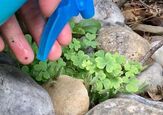

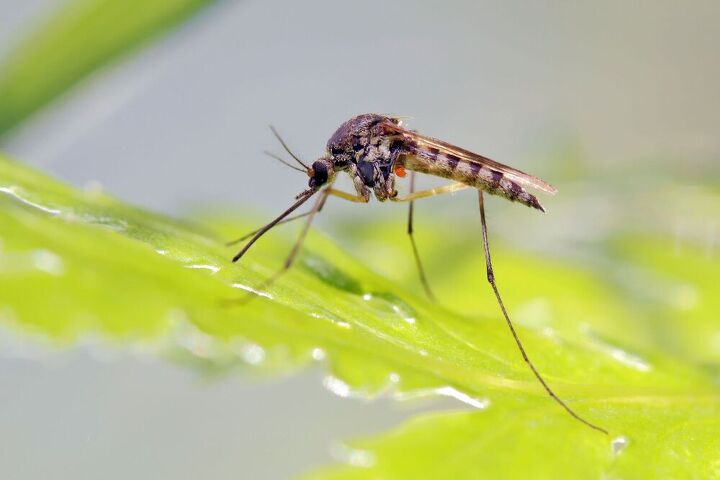


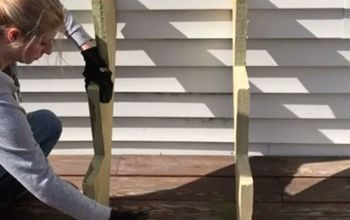

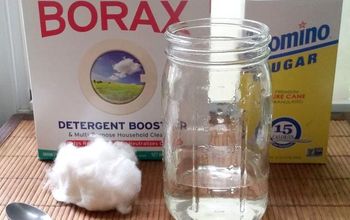
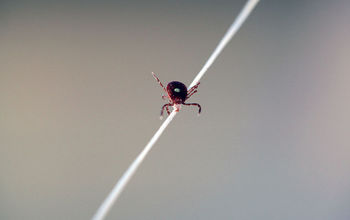





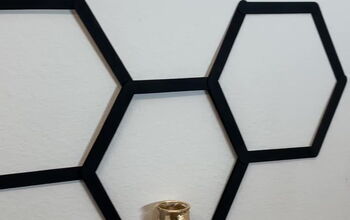
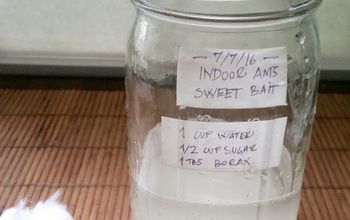

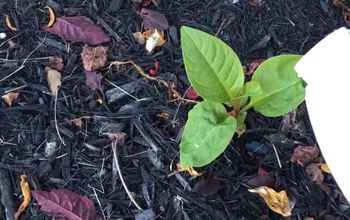


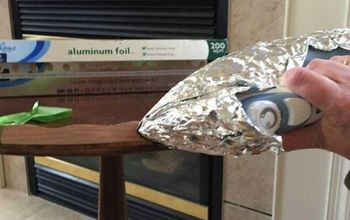

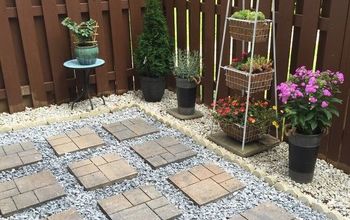


Frequently asked questions
Have a question about this project?